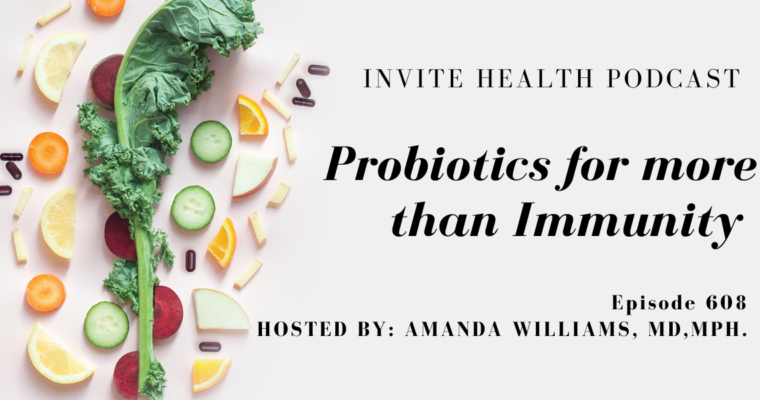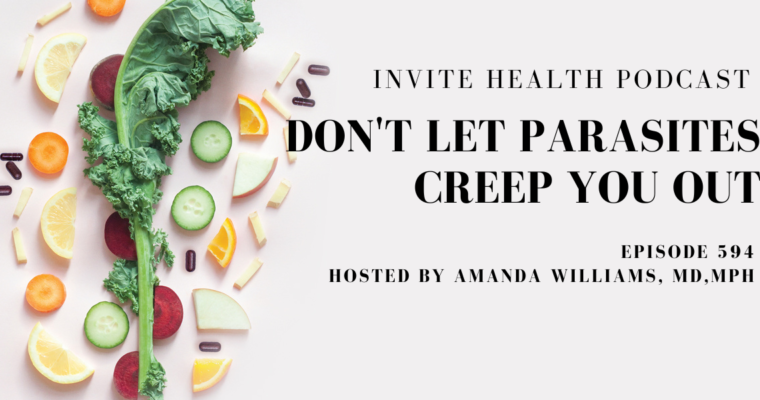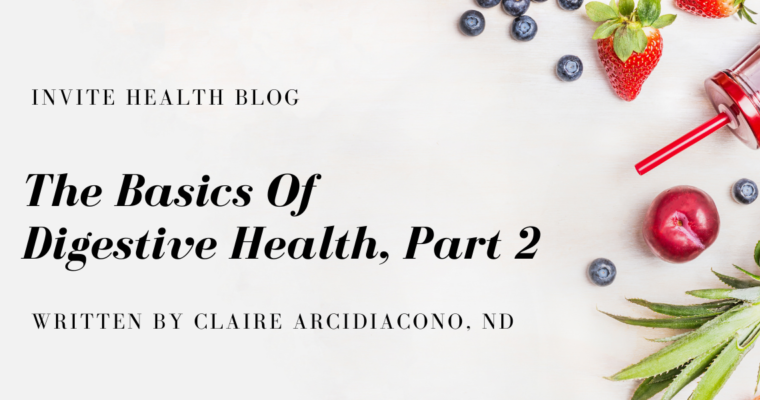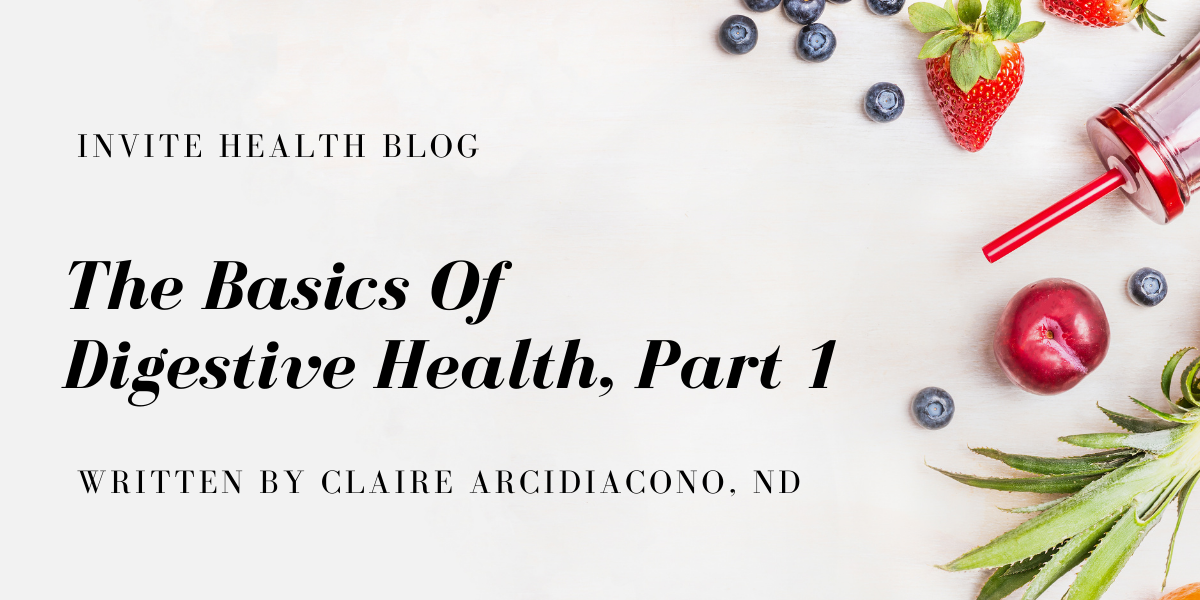Digestive health
Written by Dr. Claire Arcidiacono, ND
For further questions or concerns email me at carcidiacono@invitehealth.com
Digestive Health affects practically everyone who eats and goes to the bathroom. But what is a healthy digestive system? It’s important we start at the beginning.†
What is the Digestive System?
The digestive system is a separate system from the rest of the body. It has its own immune system, nervous system and enzymes. Anything you consume, such as food stays in the digestive system. For example, if you eat an apple, it stays in your digestive system and doesn’t float around in your blood somewhere. The digestive system is made up of a “roadway” called the gastrointestinal tract or GI tract. The GI tract is made up of the liver, pancreas and gallbladder; pictured below. (1) Since this is a complex topic, I will focus mainly on the digestive tract.†

The Gastrointestinal tract starts in the mouth. Our teeth are the first and important part of the digestive process. They help the salivary glands in the mouth help to breakdown food, especially complex carbohydrates. If you chew on a cracker for long enough, the enzymes in your mouth will break it down so it will taste sweet! (2) It is important to keep your mouth healthy and clean by brushing your teeth twice a day! Once you break down your food, you swallow it, where it enters the next part of the digestive system.†
KEY NUTRIENTS FOR COMMON DIGESTIVE HEALTH CONCERNS – INVITE HEALTH PODCAST, EPISODE 114 >> Listen Now!
The swallowed food travels through the esophagus. A gateway called the lower esophageal sphincter, separates the stomach form the esophagus. When you eat or drink, this triggers the sphincter to open; so the food can enter the stomach. However, sometimes there is an issue with the sphincter not closing properly; causing acid in the stomach to flow into the esophagus leading to “heartburn”. (3) Once you’re done eating, the sphincter closes, entering the stomach.†
The stomach is basically a blender, containing digestive enzymes and acid. The acid in the stomach is important for the enzymes to work properly. (4) It mixes the food, enzymes, and acid together to breakdown the food; killing any pathogens that may be present.†
After the stomach, the food travels to the small intestine which is only small due to its width; its length being 22 feet long! Much like the stomach, the small intestine (SI) continues to breakdown food. The SI receives enzymes from the pancreas and bile from the liver. Unlike the stomach, the SI is also in charge of the absorption of nutrients. It’s broken down into the following parts: duodenum, jejunum and ileum, pictured below:†
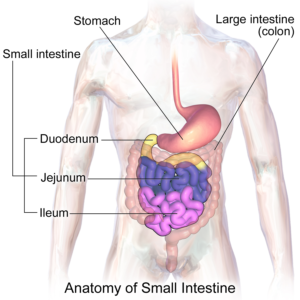
FATTY LIVER DISEASE IS ON THE RISE – INVITE HEALTH PODCAST, EPISODE 349 >> Listen Now!
The duodenum or first section of the SI is responsible for the breakdown of food. While the jejunum and Ileum are mostly responsible for the absorption of nutrients. In other words, semi solids enter the small intestine and get mixed with water, bile, enzymes and mucus to become semi liquid.†(5)
From there, the food will travel to the Large intestine or LI. This is also known as the colon. The colon (pictured below) is made up of the cecum which is connected to the SI, the ascending colon, transverse colon, descending colon and the sigmoid colon which connects to the rectum and then finally the anus.
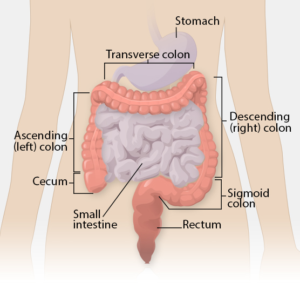
The colon absorbs water and produces waste material known as stool or feces; which is food debris and bacteria. Good bacteria in the colon help us by making certain vitamins and protecting us from pathogens. The rectum is connected to the anus, the final part of the digestive tract. The anus has sphincter muscles that allow us to control bowel movements. Normally, they allow us to hold stool until our body is ready to release it.† (6)
The GI tract is just one part of the digestive system. Next week we will move on to the organs outside of the digestive tract; which will include the pancreas, liver and gallbladder.†
Sources
https://my.clevelandclinic.org/health/body/7041-digestive-system
https://my.clevelandclinic.org/health/body/21765-mouth
https://my.clevelandclinic.org/health/body/21728-esophagus
https://my.clevelandclinic.org/health/body/21758-stomach
https://en.wikipedia.org/wiki/Small_intestine
https://en.wikipedia.org/wiki/Large_intestine


